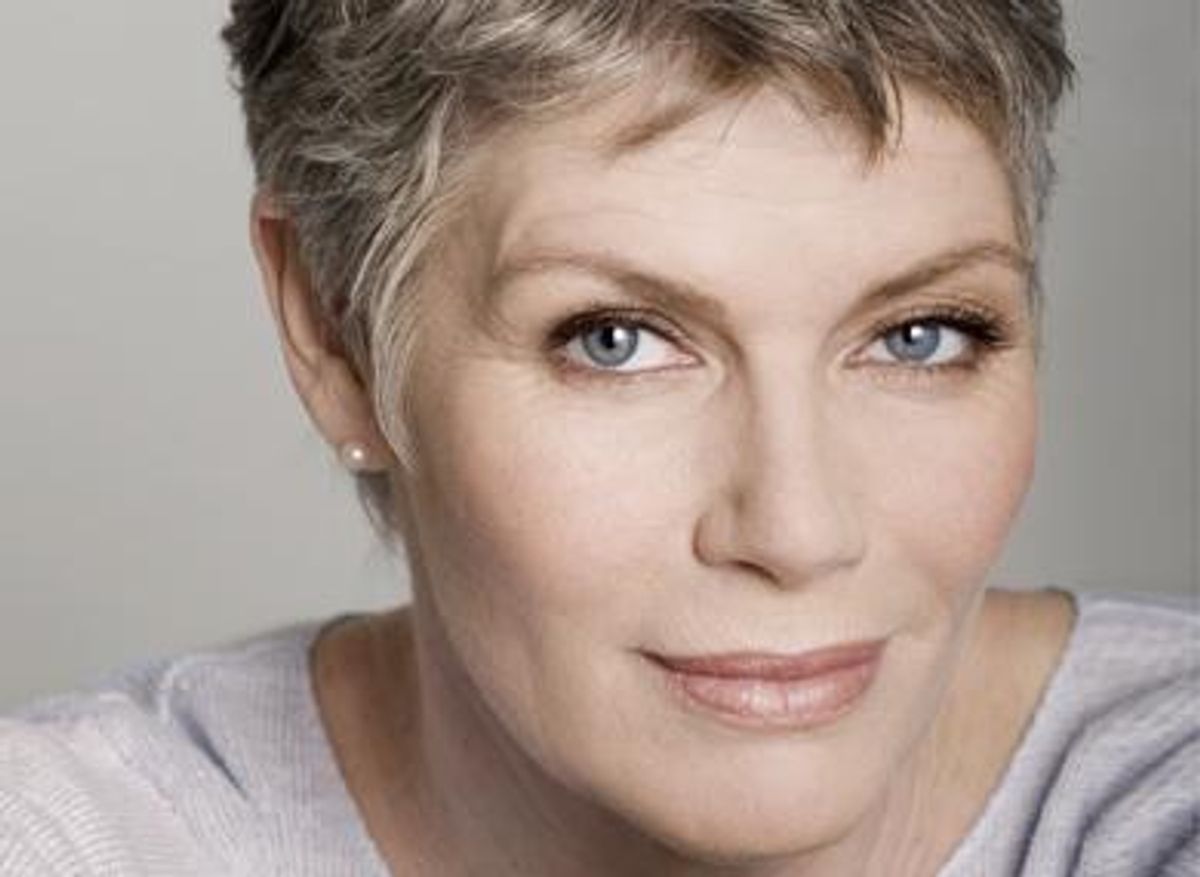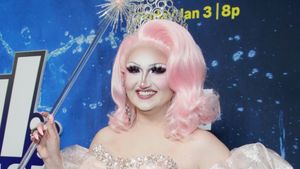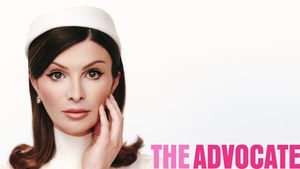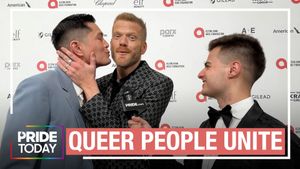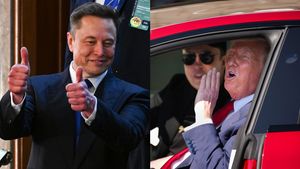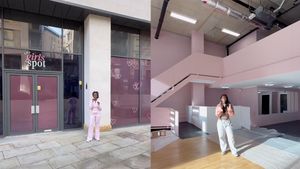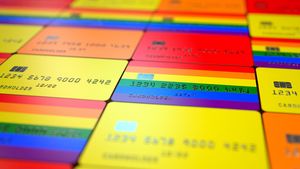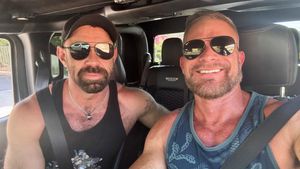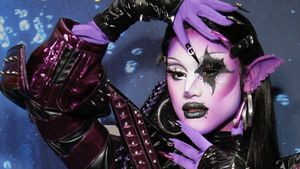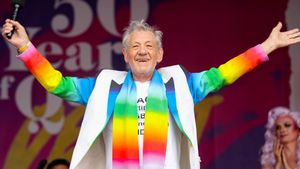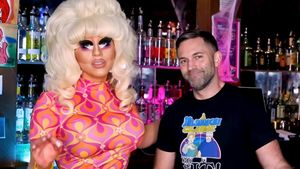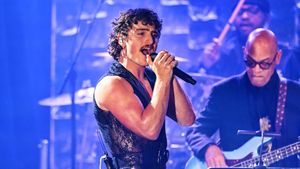After taking our breath away in 1980s hits like Witness, The Accused, and, yes, Top Gun, Kelly McGillis felt the need for less speed. While on a semi-hiatus from Hollywood to raise her two daughters, she also divorced her second husband, overcame drug and alcohol addiction, and officially came out as a lesbian in 2009. Now wed to her longtime girlfriend and almost 10 years sober, McGillis returns to the silver screen in Jim Mickle's Stake Land (in theaters April 22) as a terrorized nun opposite Gossip Girl's Connor Paolo as a young vampire hunter. In her first conversation with The Advocate, the 53-year-old reveals the even scarier responsibilities that come with coming out.
Advocate.com: The vampire genre is very hot right now. What sets Stake Land apart?
Kelly McGillis: You're asking the wrong girl. I don't know, because I've never really seen another vampire flick other than the Twilight movies, which aren't really scary.
What kind of movies do you watch?
I watch very mainstream movies. I'll watch anything, but I don't like watching scary movies because they disturb my sleep. I need my sleep.
You make a very memorable entrance in Stake Land, screaming at the top of your lungs and running from your attackers while wearing a bloody nun's habit. As an actress, did you have to go to a dark place to get there?
It's funny when people ask things like that, because if you just invest yourself in the moment and believe it with all your heart, then boom, you're there. I don't want to have to go to dark places to do my job. I've lived in dark places before, and I don't want to revisit them.
You play a nun questioning her faith in a post-apocalyptic world where fundamentalist Christian gangs are as deadly as the vamps. As someone who once said, "I had a lot of things happen that convinced me God was punishing me because I was gay," could you relate to those religious themes?
Yeah, one of the things that appealed to me about the film is the notion that extremism is dangerous. That's true of anything, whether it's religion or dieting, but that really resonated with me.
Yours is what some might call a brave and fearless performance, mainly because it demanded no makeup or vanity. Was that intimidating, or does that kind of role appeal to you?
I don't know if it appeals to me in my career, but it certainly is how I am in my life. It was very liberating not to have to wear makeup or anything. I really enjoyed the experience. When I do all that external stuff, my tendency is to focus more on the external as opposed to the internal, which is just the nature of having people puff and fluff you all day. So it was very nice not to give a shit.
I've read that you refuse to dye your hair for a role.
Listen, if someone wanted to pay me a heap of money? Sure. But truthfully, my hair is at the point where it won't stay dyed, and at some point you just have to give up the ship. Even though going gray was a somewhat harrowing transition, it was ultimately really wonderful because you get to move into a place of absolute self-expansion.
Stake Land is your first feature film in a decade, and you'll also appear in Ti West's horror film The Innkeepers, which is scheduled for release later this year. People are calling 2011 a comeback year for you.I don't even know what that means. It's odd. Does it mean I went away and came back? Because I really didn't. I've always acted; it's just that my children became first in my life and acting became second. I did act the last 10 years, but not as often. I feel like I never left.
You studied acting at Juilliard. Now that you're able to focus more on yourself, do you feel as passionately about acting as you did in the '80s? I feel incredibly passionate about acting. When I'm doing it, it is the most exhilarating experience of my life. I don't know how to explain it, but it's like frickin' free flying. It's amazing. But in my 50s, the amount of interesting roles has diminished immensely. There's also a huge kind of -- I don't know what it is, but it's a thing, and I don't know what the thing is, but I'm not in it. I'm outside of it, and I'm not willing to devote to my life to being in it. Does that make sense? I have so many other interests, and I've really started thinking about how I want to give back. So it's not that I don't have a love for acting, but I also have other things I want to do with my life before I leave.
As you get back into films, you're approaching the Hollywood machine as an out gay woman for the first time. Does it feel different? Does Hollywood look at you differently?I have no clue and I really don't care. I'm not a part of that world at all. If I cared, I wouldn't have ever said anything. If all that was important to me, I would've kept my mouth shut.
You had a very low-key coming out in 2009. In lieu of a "Yep, I'm Gay" People cover or a Today show interview, you made a casual comment about "being done with the man thing" in an interview for SheWired.com. Is that what you imagined it would be like?I never imagined it happening. I never thought it would happen at all, so I didn't have any scenario in my head. It was one of those beautiful moments that happen in life where a question was posed and I responded as honestly and openly as I possibly could, because the time was right in my life. I had no image of how it should be, because I don't live my life like that now. I spent most of my life being miserable thinking that things should be a certain way, and they aren't.
The thought of coming out never crossed your mind in 2008 while you were playing a closeted Army colonel on The L Word? Or when you filmed those steamy lesbian sex scenes for The Monkey's Mask in 2000?No, because I had children I had to care for. We lived in an area where people were scared of any differences. My priority has always been my children.
Even with an empty nest, you still live in the small town of Collingswood, N.J. Has there been any negative response?I'm sure there was, but I didn't pay attention to it. I didn't pay attention to the negative or the positive. It's none of my business or concern what other people think of me. I spent a lot of my life worrying about that, and it's a big waste of time. It's what I think of me and how I live my life that matters.
You didn't pay attention to positive letters of support from fans? There must have been letters.I don't know. If I got any, I didn't read them. If things come to my house, I pretend like I don't live there. And if I get an e-mail from someone I don't know, I pretend I don't exist.
But once you came out, you became a role model whether you like it or not.Yeah, but what a terrible burden and a huge responsibility that is. Listen, my life has been screwed up. I've made a lot of mistakes and dumb choices in my life. I've had some really crazy things happen, mostly of my own doing. Do I really want to think of myself as a role model? I don't think so. The truth is, if anything, I would like to be seen as a human being doing the best I can with what I've been given, and as someone who muddled through somehow and didn't kill anybody.
Any pressure from the gay community to lead a pride parade or film a gay rights PSA?No. I do believe in the Human Rights Campaign's efforts, and I'm a part of that, but it's not as if I'm standing on a soapbox. This is my fundamental belief: I have no right to use my public popularity to sway people to think as I do. I have my thoughts, beliefs, and values, but those are mine. I came to those conclusions after living a long life, trying different things, asking questions, and finding out what worked and what didn't. Those are my conclusions, and I would hope that other people can come to theirs on their own. Maybe I can lead by example, by living a whole, honest life, but not by telling people what to believe.
Whether it's overcoming rape in 1982, battling substance abuse, or struggling with your sexuality, your story has the potential to help and inspire many people. Have you ever considered writing a memoir?Listen, darlin', I'll definitely do a memoir at some point, but nobody will believe it. And I've got to wait until quite a few people have left us first.
You and longtime girlfriend Melanie Leis entered into a civil union in September. Why was it important for you to take that step in your relationship?She had been asking me for 10 years. It never really mattered to me, but it became really important for her as something that would make her feel reassured, so I did it. I can't say that it was a political move. I did it out of respect for somebody that I loved very much.
Political statement or not, you invited The New York Times out to Collingswood to cover the ceremony.That wasn't my intention to begin with, but when they asked me if they could cover it, that's what I chose to do, because I do believe in equality for everybody.
That Times feature was very revealing, and both you and Melanie were surprisingly candid about your rocky relationship and shared history of substance abuse. Were you happy with the piece?I never read it. I don't read those things, so I don't know.
Does that mean you won't read our interview?Probably not. [
Laughs] Life is too short.
